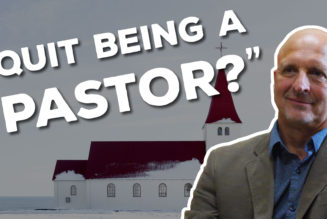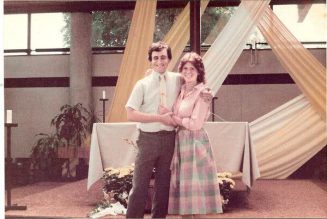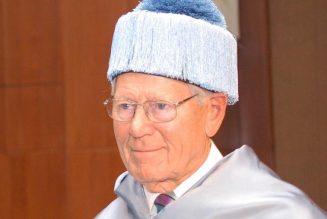“Likewise, you should know that you will be so close to your husband that wherever he goes he will carry the memory, recollection, and reminder of you. You notice it in all married couples, for as soon as we see the husband, we ask him, ‘How is your wife?’ and as soon as we see the wife, we ask her, ‘How is your husband?’ for that’s how closely the wife is connected to the husband.”
The Good Wife’s Guide (A medieval book on marriage)
There is a beautiful phenomenon especially noticeable in some couples. Upon seeing one spouse you immediately think of the other. Somehow, where there is one there is also the other. This calls for a closer consideration.
There is an objective spousal bond constituted by the marriage vows. Once formed, this bond transcends how the spouses happen to feel or act at any given time. This is a ‘metaphysical’ reality that is at once obvious and mysterious.
But this is distinguishable from a kind of mutual indwelling referenced in the quotation. This latter is something that must be forged and cannot be taken for granted. Rooted in yet distinct from the marriage bond itself, this indwelling is a natural expression and fruition of that bond.
I love the observation that upon seeing a husband we are inclined to ask, “How is your wife?” And the same upon seeing the wife. Our author refers to this as something we do for ‘all married couples.’ I take this to mean that asking this question is a matter of good manners; that is, it is an outward practice reflecting an important truth about marriage–and what it can and should be. Upon seeing one spouse we immediately inquire after or offer good wishes regarding the other spouse, precisely because of the nature of marriage.
Yet the author’s prior statement refers to something that may or may not be actual in a marriage. He points to what a good husband should do, namely, that “wherever he goes he will carry the memory, recollection, and reminder of you.” When spouses do this, their bond is enacted and made manifest in a powerful, sometimes arresting fashion.
Here is something about which a husband (and wife) can be intentional. I can act to make my spouse all the more truly present with me. This is to do marriage more fully.
Wherever I am, my very ‘being’ and ‘doing’ right now is in some way part of a greater whole. For we are trying to be other selves as only spouses can be, as complementary in making one life together. Right now my wife might be remote in place; she is never remote in reality.
Yes, at times I can be distracted from who I really am and lose sight of the full implications of what I have promised to her. But I can keep choosing to be united to her in heart and mind, and especially in intention, and prayer.
Our author focuses on the key role of memory. Memory is always most about bringing greater richness into the present. In this case, memory unites and holds together what is separate in body. To remember my wife regularly and indeed habitually is to grow the unity of our marriage. Memory thus forges the present, and the future.
And such memory never just happens. It is chosen and cultivated. Again and again every day.
So please, when you see me, ask me how my wife is doing. In this you can help me to do better what I so badly want to do. To be her husband, always.
The Good Wife’s Guide (Le Menagier de Paris) is an anonymous book from medieval France (1393) offering advice to a young wife. It is an important historical text, and it raises challenging issues regarding the relationship of husband and wife in marriage.
“There is a valley in south England remote from ambition and from fear…” Hilaire Belloc, ‘The Mowing of a Field’ Reading a Belloc essay aloud is one of my favorite things to do with students in my home—or in this case around a bonfire. Such readings were very…
“Through pain I’ve learned To comfort suffering men.” Virgil, The Aeneid (Dido to Aeneas) The incomparable Virgil once again gives us words through which to see our own life. There is a reason that in Dante’s masterpiece The Divine Comedy Virgil acts as a guide….
Husband, father, and professor of Philosophy. LifeCraft springs from one conviction: there is an ancient wisdom about how to live the good life in our homes, with our families; and it is worth our time to hearken to it. Let’s rediscover it together. Learn more.
Join Our Telegram Group : Salvation & Prosperity











